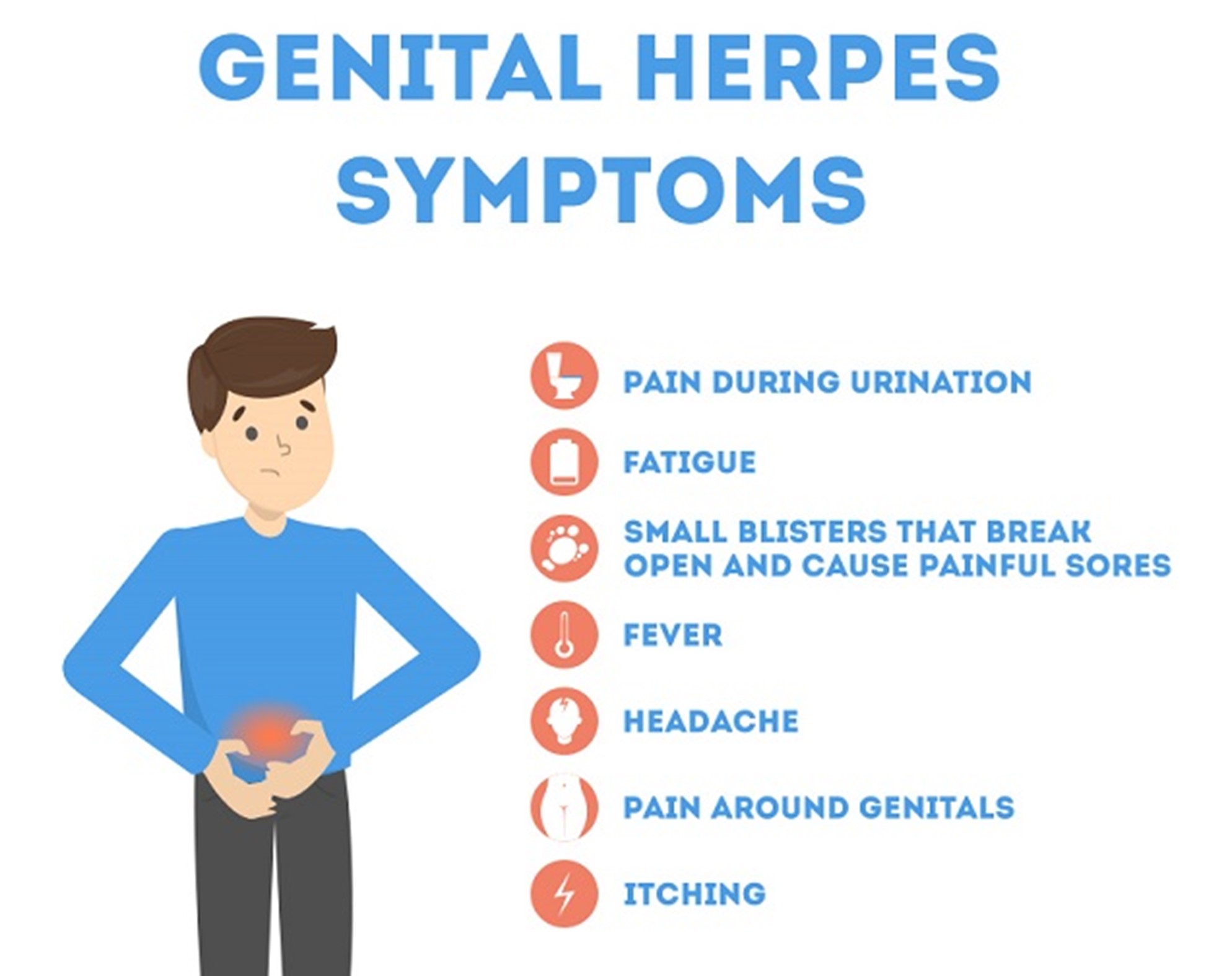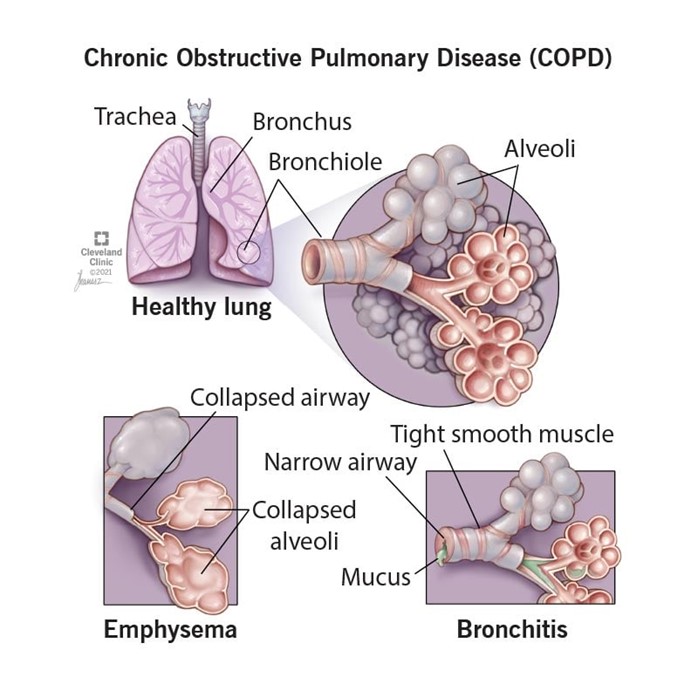A nurse is assessing a male client recently diagnosed with genital herpes. Which finding would most likely correlate with this diagnosis?
Reports of itching, tingling, and pain in the genital area
Painful urination with a penile discharge present
Wart-like flesh-colored lesions on the scrotal area
A chancre on the penis
The Correct Answer is A
Choice A: Reports of itching, tingling, and pain in the genital area are the correct answer because they are common symptoms of genital herpes. Genital herpes is a sexually transmitted infection (STI) caused by the herpes simplex virus (HSV). It can cause outbreaks of painful blisters or sores on or around the genitals, anus, or mouth. The blisters or sores usually heal within a few weeks, but the virus remains in the body and can reactivate at any time. Before an outbreak, some people may experience prodromal symptoms such as itching, tingling, or pain in the affected area.
Choice B: Painful urination with a penile discharge present is not the correct answer because it is more likely a symptom of another STI, such as gonorrhea or chlamydia. Gonorrhea and chlamydia are bacterial infections that can affect the urethra, cervix, rectum, or throat. They can cause symptoms such as burning or pain during urination, abnormal discharge from the penis or vagina, or bleeding between periods.
Choice C: Wart-like flesh-colored lesions on the scrotal area are not the correct answer because they are more likely a symptom of another STI, such as human papillomavirus (HPV). HPV is a viral infection that can cause genital warts or cervical cancer. Genital warts are small, soft, flesh-colored growths that can appear on or around the genitals, anus, or mouth. They may be flat, raised, or cauliflower-shaped.
Choice D: A chancre on the penis is not the correct answer because it is more likely a symptom of another STI, such as syphilis. Syphilis is a bacterial infection that can affect various organs and systems of the body. It has four stages: primary, secondary, latent, and tertiary. In the primary stage, syphilis causes a painless sore called a chancre that can appear on or around the genitals, anus, or mouth. The chancre usually heals within a few weeks, but the infection can progress to the next stages if left untreated.

Nursing Test Bank
Naxlex Comprehensive Predictor Exams
Related Questions
Correct Answer is B
Explanation
Choice A: Protrusion of the posterior bladder wall downward through the anterior vaginal wall is not the correct answer because it describes a different condition called cystocele. A cystocele occurs when the bladder pushes into the vagina due to weakened pelvic support structures.
Choice B: Bulging of the small intestine through the posterior vaginal wall is the correct answer because it describes an enterocele. Enterocele occurs when the small intestine slides into a pouch between the rectum and vagina due to weakened pelvic support structures.
Choice C: Descent of the uterus through the pelvic floor into the vagina is not the correct answer because it describes a different condition called uterine prolapse. Uterine prolapse occurs when the uterus drops down into or out of the vagina due to weakened pelvic support structures.
Choice D: Sagging of the rectum with the pressure exerted against the posterior vaginal wall is not the correct answer because it describes a different condition called rectocele. Rectocele occurs when the rectum bulges into or out of the vagina due to weakened pelvic support structures.
Correct Answer is D
Explanation
Choice A: A 26-year-old client who has migraine headaches at the start of each menstrual cycle is not the correct answer because they do not have a contraindication for receiving oral contraceptives. Oral contraceptives are pills that contain synthetic hormones (estrogen and progestin) that prevent ovulation and pregnancy. They can also help reduce menstrual cramps, bleeding, and migraines in some women. However, oral contraceptives may increase the risk of stroke in women who have migraines with aura (visual disturbances), so they should be used with caution and under medical supervision.
Choice B: A 28-year-old client who has a history of pelvic inflammatory disease is not the correct answer because they do not have a contraindication for receiving oral contraceptives. Pelvic inflammatory disease is an infection that affects the female reproductive organs, such as the uterus, fallopian tubes, or ovaries. It can be caused by various bacteria, such as chlamydia or gonorrhea, and can lead to infertility, ectopic pregnancy, or chronic pelvic pain if left untreated. Oral contraceptives can help prevent pelvic inflammatory disease by creating a thick cervical mucus that blocks the entry of bacteria into the uterus.
Choice C: A 32-year-old client who has benign breast disease is not the correct answer because they do not have a contraindication for receiving oral contraceptives. Benign breast disease is a term that refers to various noncancerous conditions that affect the breast tissue, such as fibrocystic changes, fibroadenomas, or mastitis. They can cause symptoms such as breast pain, tenderness, or lumps. Oral contraceptives can help reduce the symptoms of benign breast disease by regulating the hormonal fluctuations that influence breast tissue growth.
Choice D: A 38-year-old client who reports smoking one pack of cigarettes every day is the correct answer because they have a contraindication for receiving oral contraceptives. Smoking is a habit that involves inhaling tobacco smoke, which contains harmful substances such as nicotine, tar, or carbon monoxide. Smoking can increase the risk of various diseases such as lung cancer, chronic obstructive pulmonary disease (COPD), or cardiovascular disease. Oral contraceptives can further increase the risk of cardiovascular disease in smokers, especially those who are over 35 years old, by increasing blood pressure, cholesterol levels, and clotting factors. Therefore, oral contraceptives are not recommended for smokers and alternative methods of contraception should be used instead.

Whether you are a student looking to ace your exams or a practicing nurse seeking to enhance your expertise , our nursing education contents will empower you with the confidence and competence to make a difference in the lives of patients and become a respected leader in the healthcare field.
Visit Naxlex, invest in your future and unlock endless possibilities with our unparalleled nursing education contents today
Report Wrong Answer on the Current Question
Do you disagree with the answer? If yes, what is your expected answer? Explain.
Kindly be descriptive with the issue you are facing.
